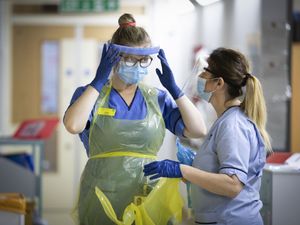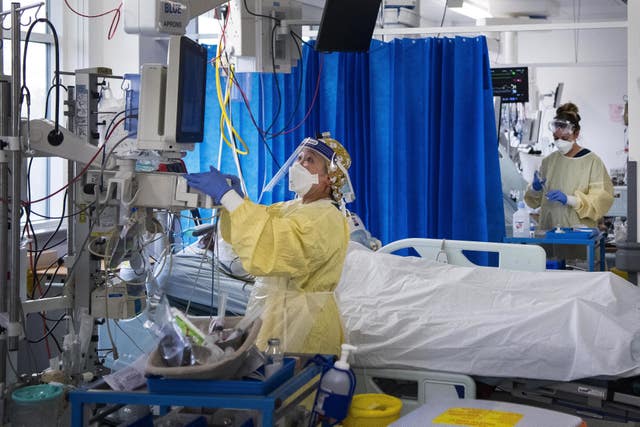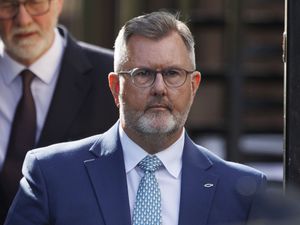Chief Medical Officers warn of tough times ahead amid praise for health service
The UK’s CMOs said the work of the health service had ‘substantially reduced the impact of this pandemic on the lives of the public’.

The UK’s Chief Medical Officers (CMOs) have praised health service staff who have worked on the frontlines during the pandemic as they warned of “multiple challenges” and “a great deal of pressure” from the Omicron variant in the year ahead.
They said they were “well aware” that their “tireless work” in dealing with the pandemic over the last two grinding years has been difficult for the profession.
They added the work of health staff has “substantially reduced the impact of this pandemic on the lives of the UK public” but the fast-spreading Omicron variant of the coronavirus, along with the Delta version that has already struck, means the profession will still be tested.

In a joint online statement, the CMOs said: “Your tireless work has substantially reduced the impact of this pandemic on the lives of the UK public.
“We are well aware of the toll this has had on many members of the profession, and the support colleagues have continue to give to one another in difficult times has been essential.
“The collective effort on behalf of our patients and the wider public has been remarkable.
“We were all hoping that Covid would be less dominant across the health service as we move into the New Year, but the Omicron variant is clearly going to put a great deal of pressure on health services and on all health professionals.
“We can all see the concerning numbers of Omicron-infected people rising very rapidly, some of whom will become seriously ill and need medical care.
“This is on top of existing Delta patients, the backlog of work from the previous Covid wave, normal health service work and other winter pressures.”
Figures from NHS England show that 1,904 people were in hospital in London with Covid-19 as of December 21, the highest number since March 2 and is up 41% from a week earlier.
Across England, 6,902 patients were in hospital with Covid-19 on December 21 – the highest number since November 10 and up 7% week-on-week.
The CMOs described vaccination, and booster jabs in particular, as the best counter-measure against Omicron and praised the whole medical profession in primary and secondary care for the “rapid and effective” way it was working to deal with this new threat.
They added: “As we face the multiple challenges of 2022, we want to reiterate our unwavering confidence in the profession and our enduring thanks.”
In a personal note introducing the post, England’s CMO Professor Chris Whitty added: “After a very difficult year for the health system, the UK CMOs want to express our enduring thanks to, and great pride in, the health professions across the country.
“We face yet more hard weeks ahead. Look out for one another as we continue to care for the public.”
In a further note, Scotland’s CMO Dr Gregor Smith said: “It’s hard to adequately describe my pride in colleagues or gratitude that I feel towards them. I know all the UK CMOs feel the same.
“Please continue to look out for and support each other in the difficult weeks that lie ahead. You have our unwavering confidence and enduring thanks.”
The British Medical Association trade union previously noted that the booster rollout will affect routine services, and challenged the Prime Minister to fulfil his promise of Government support for the NHS.
In September, Saffron Cordery, deputy chief executive of NHS Providers, described the challenges facing the NHS as it headed into winter as “daunting”.
She said: “Trusts are grappling with record waiting lists across hospital, mental health and community services. Bed capacity is lower because of continuing enhanced infection control measures.
“Staffing levels and burnout continue to be a critical concern for many trusts.”





